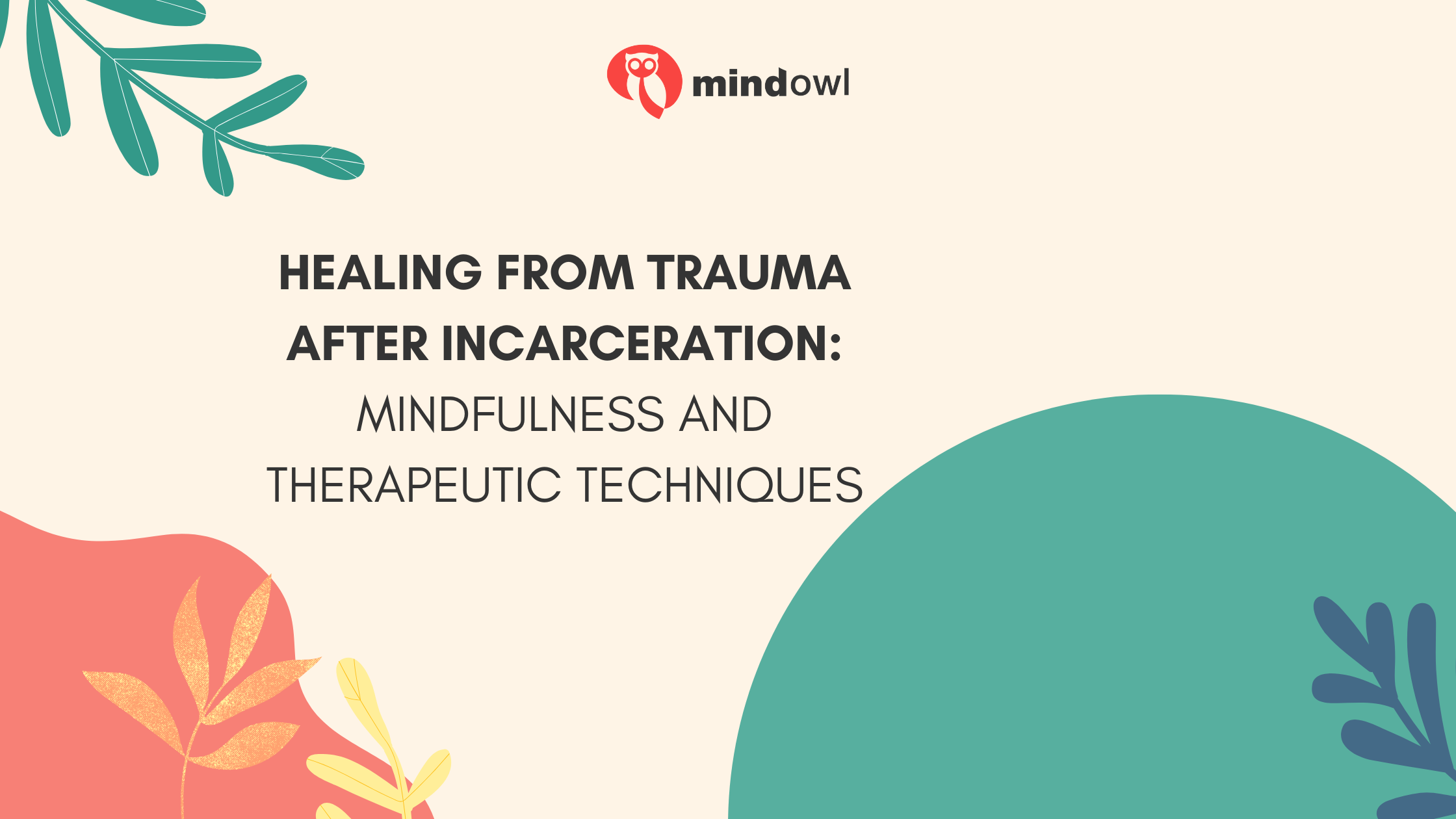Trauma related to being locked up can be long-lasting and affect everything from mental health to emotional well-being. For so many who have spent time in juvenile detention centers or other forms of incarceration, the road to healing requires more than just physical freedom; it requires emotional and mental recovery. This article reflects on various post-detention care options that look toward leveraging mindfulness, individual therapy, and self-driven practices as aids in overcoming trauma and supporting life-rebuilding efforts.

Understanding the Emotional Consequences of Imprisonment
Many feel powerless, ashamed, and anxious, even years after release. The stiff routines, isolations, and loss of self-determination in detention settings breed chronic stress, depression, and post-traumatic stress disorder. There is a need to acknowledge such emotional wounds as the first step toward the resolution of trauma.
For those who spent their developmental stages in prison, for instance, juvenile detention centers, the effects can be much more radical. The teenage years are a tender age for emotions and psychological development; hence, trauma at this stage disrupts that process severely. Recovery entails rebuilding self-esteem, learning to trust oneself, and resolving the feelings one associates with their past.
Using Mindfulness to Overcome Trauma
Mindfulness is an effective therapeutic agent in the emotional and psychological trauma that arises after imprisonment. By anchoring themselves in the present, they could manage to slowly break the vicious circle of fear, anxiety, and regret that comes with trauma. Practices like meditation, deep breathing exercises, and mindful walking help individuals reconnect with their bodies and emotions in a safe and non-judgmental way.
Being mindful helps a person stay in the present; it is where the mind is free from replays of the experiences encountered or the tensions involved in thinking about the future. Some programs have promising results for offering training on mindfulness to inmates. In this program, participants often reduce anxiety, regulate emotions better, and feel an increase in inner peacefulness.
Benefits of Therapies in the Healing Process
Another essential way to enable them to overcome the trauma of incarceration is professional therapy. Cognitive Behavioral Therapy is one of the strong methods to clear the residues of PTSD and anxiety after release from detention. CBT helps judgments of negative thought patterns be replaced with healthier and more positive ways of thinking. This process may be very instrumental in addressing the prevailing shame and fear pertaining to past experiences in detention.
For those who have faced traumatic experiences while in incarceration, for instance, therapy opens a forum where these experiences can be shared. Through the therapy, the individual gains insight into the actual triggers of any specific reactions resolves feelings that one was not able to deal with at the time of the situation, and thus understands themselves better. Therapeutic support enables former inmates to work out ways to cope with stress and overcome their emotions, thus finding a place in society.
Specialized trauma therapy, particularly EMDR, which stands for eye movement desensitization and reprocessing, is especially effective in helping those who have experienced high levels of trauma while incarcerated. EMDR helps the brain reprocess traumatic memories so that they no longer hold the same emotional charge, offering symptoms relief from PTSD and overall healing.
Legal Advocacy to Address Trauma
Legal advocacy helps provide critical services to those abused or mistreated while incarcerated. Young people, in particular, while being held in juvenile detention facilities, may experience added trauma of abuse. A part of their healing process is having justice served on their behalf.
A juvenile detention center sexual abuse lawyer provides top-notch support a juvenile needs to navigate such conditions down complex legal pathways. Attorneys who can understand the peculiarities associated with abuse cases can help victims seek justice and accountable parties responsible, which is considered one of the key steps in the journey to recovery.
Self-Help Approaches for Emotional Healing
Apart from mindfulness and therapy, some of the self-help strategies that aid emotional recovery after incarceration include journaling. Journaling is a simple means for people to process their feelings and reflect on their journey. Writing about daily experiences, struggles, and small victories can help make some sense of their feelings and track progress over time.
Other methods for effective self-care approaches include physical exercises. Exercise releases endorphins, which raise a person’s mood and lower feelings of anxiety and depression. Whether yoga, running, or even a brisk walk, exercise itself can be a great way to manage the emotional turmoil associated with being incarcerated.
A daily routine that incorporates mindfulness, physical activity, and reflection helps bring structure and purpose back into the lives of those recovering from incarceration. Building routines also builds a sense of control, which is often lacking for individuals during their time in detention.
Conclusion
Healing from the traumas associated with being incarcerated is a multifaceted journey, psychological and practical. In the process of recovery from the debilitating consequences of incarceration, the journey of mindfulness, therapy, and self-help strategies each plays an important role. We support those building healthy and fulfilling lives by providing them with opportunities for healing, self-discovery, and the administration of appropriate justice in response to abuse.
MindOwl Founder – My own struggles in life have led me to this path of understanding the human condition. I graduated with a bachelor’s degree in philosophy before completing a master’s degree in psychology at Regent’s University London. I then completed a postgraduate diploma in philosophical counselling before being trained in ACT (Acceptance and commitment therapy).
I’ve spent the last eight years studying the encounter of meditative practices with modern psychology.

